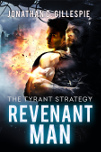History’s Wheel and Reluctant Change Agents
June 7, 2012 in General Topics
 It is a fact that history is often made by those who never wanted to get wrapped up in the course of human events. But snared by circumstance, fate, divine providence, or whatever else one might call it, ordinary people have shaped eras that at first seemed far beyond their influence. Many of mankind’s most incredible figures started their lives defined by situations wholly out of their control. Consider Julius Caesar, whose life was nearly snuffed out in adolescence by a Roman dictator.
It is a fact that history is often made by those who never wanted to get wrapped up in the course of human events. But snared by circumstance, fate, divine providence, or whatever else one might call it, ordinary people have shaped eras that at first seemed far beyond their influence. Many of mankind’s most incredible figures started their lives defined by situations wholly out of their control. Consider Julius Caesar, whose life was nearly snuffed out in adolescence by a Roman dictator.
And consider Reed Barowe. He’s an agent in the Serpican Police, and beyond good at what he does. He’s augmented biologically and cybernetically, but he’d far prefer remaining in the shadows of the subjugated Earth forming the backdrop of my upcoming novel The Tyrant Strategy: Revenant Man. So of course, I though he’d be a terrific character to force some of those external stresses upon. The fact that he is an “agent” is a little bit of semantic fun.
Let me elaborate.
The traditional western view of history is that of a line, with a beginning and end. We see it in our fiction, too, with our obsession with the “end” of known civilization. All this point B stuff.
Some eastern philosophies see history as more akin to a wheel, with events repeating themselves. I believe history is a combination of the two. It is a wheel moving along the line — a road, really — that we call “progress”. The wheel turns as it goes, as generations are born, rise and pass on, as people lose and then relearn the lessons of their ancestors, and events flare up and die out.
The wheel continually hits bumps in the road. These are pocket economic woes, unexpected storms, local conflicts and the like.
But every now and then, the wheel encounters tremendous obstacles in its way. World wars. The Black Death. The fall of the Assyrian Empire. The collapse of Rome. The colonization and conquest of the New World.
In such times, the wheel pauses. And when it does, men and women — who are very often ordinary people of no great significance or background — are forced to define the events that suddenly sway and threaten to topple upon their shoulders. They are forced to roll the wheel forward over its latest challenge. Some find ambition; see opportunities and take them. But many never imagine they can influence events. I call these people change agents.
Barowe is a change agent. He doesn’t want to be. I learned this when I met him. And I did meet him, you know.
You see, writing at its best feels like channeled schizophrenia. Writers have seen that point in their manuscripts where they realize their characters have decoupled from the outline and are now doing as they wish. It’s mindblowing. It’s one of the reasons you’ll catch a writer up at 2AM.
It’s like having a conversation with a stranger that shows up at a party — who you then realize you have so much in common with. You lose yourself in the exchange. Writing a good character (and reading one) is the world’s oldest form of virtual reality. It is beyond gripping. It is immersive. And the effect is just as heady, just as potent with more unpredictable characters, such as the man Reed Barowe meets in the book. (More on him in a moment).
I’ve gotten to know Barowe really well. I’ve seen 2142 through his eyes. I’ve watched him plead not to be involved, not to be confronted with choices he must make. Barowe’s journey, as well as those for many of the others in the book, is not taken voluntarily.
There are other change agents in the novels, too. Most of them are everyday people, most of them downtrodden or oppressed, who start the Tyrant Strategy series feeling completely out of control.
Only one of them realizes early on what he might be capable of accomplishing. And that’s the man Barowe meets. The man I met, too.
And oh, the conversations he and I had.
What do you get when you take a man with drive and brilliance? With all the great and horrible potential that make up a willing change agent? You get a great protagonist. Or a great antagonist.
And Barowe, and the reader, will get to figure out which one this man is.
Keep rolling.
And stay tuned.

Recent Discussion